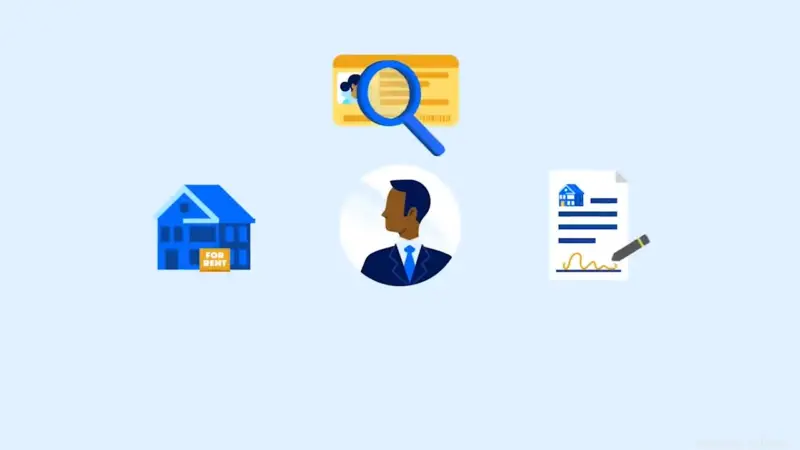The competitive rental market in New York City has made it a prime environment for fraudulent schemes.
With thousands of people searching for housing daily, scammers exploit the urgency and high demand to target unsuspecting renters.
Being aware of these deceptive tactics and prepared to recognize them is crucial for anyone navigating the rental process.
Staying informed can mean the difference between securing your dream home and falling victim to a costly scam.
3 Common Types of Rental Scams

The rental market in New York City is rife with opportunities for scammers to exploit desperate or uninformed renters.
High demand, coupled with limited availability, makes it easier for fraudsters to manipulate the system and deceive renters into losing money or personal information.
By understanding common scams, renters can protect themselves more effectively and make informed decisions. Below are some of the most widespread schemes renters should be aware of:
1. Phantom Rentals
One of the most frequently encountered scams involves phantom rentals. These listings advertise properties that simply do not exist or are unavailable for rent.
Scammers often fabricate enticing advertisements using:
- Professionally edited photos stolen from other websites.
- Descriptions that promise luxurious amenities at shockingly low prices.
- Details designed to lure renters in quickly, such as “no background check” or “immediate availability.”
Once a renter expresses interest, the scammer demands deposits or application fees upfront. The victim pays, believing they are securing their future home, only to discover that the property was never real.
Why it’s dangerous:
- Financial loss due to non-refundable payments.
- Loss of time and energy spent pursuing an imaginary listing.
- The emotional stress of starting the search process all over again.
2. Hijacked Ads
This scam involves the manipulation of legitimate rental listings. Scammers copy real property advertisements and then alter the contact details to redirect inquiries to themselves. Since the photos and descriptions are genuine, renters have little reason to suspect foul play. Common tactics include:
- Creating fake email addresses that mimic legitimate agencies or landlords.
- Altering phone numbers to reroute communication.
Victims are often asked for personal information, such as Social Security numbers or banking details, under the guise of conducting background checks.
In some cases, scammers demand application fees or deposits, then disappear after receiving payment.
Signs of a hijacked ad:
- Discrepancies between the landlord’s contact information and the property’s official management company.
- Requests for sensitive data or money before signing a lease.
- Poorly worded emails or suspiciously generic communication.
3. Bait-and-Switch Schemes
Another common scam is the bait-and-switch scheme, where renters are lured in by an attractive property listing, only to discover the property is unavailable when they attempt to finalize the rental.
Instead, the scammer pressures the renter to consider another unit that is:
- Inferior in condition or size.
- Far more expensive than the originally advertised property.
- Located in an area that may not meet the renter’s expectations.
Scammers often prey on renters who are under time constraints, such as those moving for work or school, making it difficult for them to walk away.
Victims may feel pressured into settling for an unsatisfactory option.
Red flags of a bait-and-switch scheme:
- A sudden change in property availability after initial interest.
- High-pressure tactics, such as “you must sign today.”
- Unwillingness to provide clear answers about the switch.
5 Red Flags to Watch For
View this post on Instagram
Navigating the rental market in New York City can be challenging, but recognizing warning signs can save you from falling victim to scams.
Scammers often employ various tactics to exploit renters, many of which can be identified if you know what to look for. Below are critical red flags that signal a potential scam.
1. Unusually Low Rent Prices
Scammers often advertise properties with rents far below the market rate to grab attention. While it may seem like a fantastic opportunity, these deals are usually too good to be true.
The intention is to draw in desperate or uninformed renters who may overlook proper due diligence.
Example: A two-bedroom apartment in a high-demand area priced at half the average market rate.
Tip: Always compare the advertised price with similar properties in the same area to ensure it aligns with market trends.
2. Pressure to Act Quickly
@closedbymo 🚫🕵️♂️ NYC RENTAL SCAMS🕵️♂️🚫 Don’t fall for common traps. Learn the red flags before you send over money to someone claiming to be an agent or landlord. Phony Listings 🏠🚫 Wire Transfer Requests 💸🚫 Fake Landlords/Agents 👥🚫 Over-the-Top Deposits 💰🚫 Bait-and-Switch Tactics 🔄 Unfortunately, the NYC rental market sees its fair share of scams and scam artists that try to make a quick $ from innocent people. Some of these scams have even gotten really sophisticated and believable enough to where people that already work in real estate can also fall for them! If you’re not sure whether or not you’ve been affected by a potential real estate scam, I’m happy to talk things through with you and point you in the right direction. I ANSWER ALL CALLs/DMs/COMMENTs/TEXTs/EMAILs 📲929-349-8042 📧Mo@ClosedByMo.com IG/TikTok/YT/FB/LI @ClosedByMo #ClosedByMo #NYCRealEstate #ResidentialRealEstate #CommercialBroker #RealEstateInvesting #CashFlowKing #NYCREInvesting #HouseHack #BiggerPockets #IBUYANDSELLREALESTATE #NYCHistory #RealEstateInvesting #NYCRentals #RealEstateTips #NYRealEstate #NYCRentals #RentalScamAwareness #SafeHouseHunting ♬ original sound – Mohammed Rahman
A sense of urgency is a classic tactic used by scammers.
They will push renters to act fast, claiming that the property has numerous other applicants or that the deal will vanish within hours.
The pressure prevents you from carefully assessing the situation or conducting proper research.
Example: “You need to send a deposit by tonight, or someone else will take the apartment.”
Tip: A legitimate landlord will give you sufficient time to review documents and make an informed decision.
3. Requests for Unconventional Payment Methods
If the landlord or agent requests payment through wire transfers, cryptocurrency, or gift cards, it is almost certainly a scam.
These payment methods are difficult to track and often impossible to recover once sent. Scammers use this strategy to ensure they cannot be tracked.
Example: A “landlord” asking for rent to be paid in Bitcoin or through a money transfer service.
Tip: Stick to traditional payment methods like checks or secure online platforms for all transactions.
4. Lack of Proper Documentation

Legitimate rental agreements are formalized through standard documentation, including a lease and identification for both parties.
Scammers often avoid these formalities, claiming various excuses such as time constraints or a “trust-based” approach.
Example: A landlord who says, “We’ll handle the paperwork later—just send the deposit for now.”
Tip: Insist on receiving a signed lease agreement and verifying the landlord’s credentials before proceeding.
5. Refusal to Allow Property Viewing
Scammers frequently avoid showing the property in person or virtually, claiming that they are out of town or that the unit is unavailable for viewing until after payment.
Legitimate landlords will accommodate viewings to ensure transparency.
Example: “The property is currently occupied, but you can move in immediately after sending the first month’s rent.”
Tip: Always request a viewing, and if the landlord refuses, consider it a red flag.
3 Steps to Protect Yourself
Airbnb rental scams are rampant — here are 4 ways to protect yourself, according to a travel expert https://t.co/97ffTddeTU pic.twitter.com/HmTBYqF5Hb
— New York Post (@nypost) June 11, 2024
Navigating the rental market in New York City requires vigilance and a proactive approach to ensure your safety against scams.
Fraudsters prey on the sense of urgency and high competition, which makes it essential for renters to take deliberate steps to protect themselves.
1. Research the Listing and Landlord
A thorough investigation of the property and landlord is a critical first step.
Scammers often rely on renters failing to verify details, which makes due diligence vital.
Use public records to confirm ownership and check online reviews for any complaints about the landlord or agent.
- Verify the listing details: Cross-check the address and photos with other sources to ensure consistency.
- Use an AI checker: Advanced tools can detect altered or fake images, as well as identify suspicious patterns in listing descriptions.
2. Use Verified Rental Platforms

Stick to reputable rental websites that have established measures to screen landlords and listings. These platforms often have strict verification processes that make it harder for scammers to operate.
- Choose platforms with reviews: Reputable websites often display user feedback, which can help you assess the legitimacy of the landlord and property.
- Avoid unknown platforms: Lesser-known websites without strong vetting processes are more likely to host fraudulent listings.
3. Never Pay Before Signing a Lease
One of the most common mistakes renters make is sending money before formalizing agreements.
Always ensure that a written lease is in place before making any payments.
- Read the lease carefully: Verify that the terms align with what was discussed.
- Use secure payment methods: Avoid wire transfers or cryptocurrency, as they are harder to trace and recover.
The Bottom Line
Staying alert is the most effective way to protect yourself in NYC’s competitive rental market.
By trusting your instincts and recognizing potential scams, you can navigate the process more securely and confidently.



